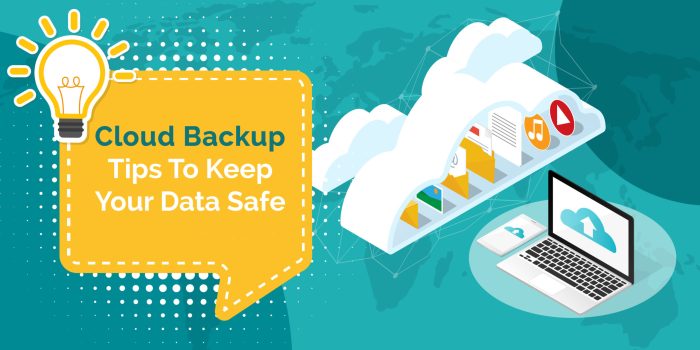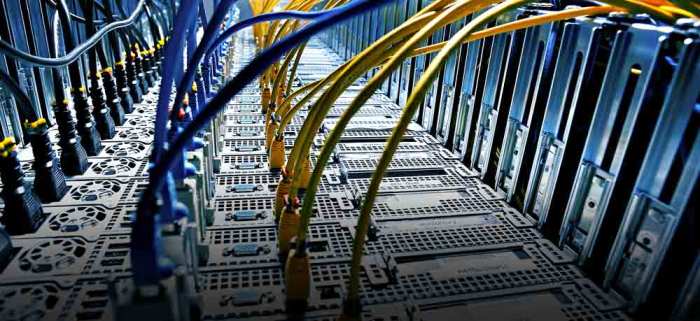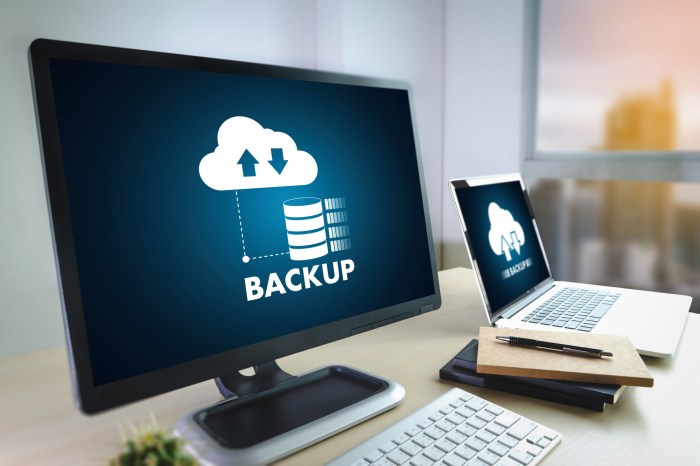Dedicated server for data storage and backup: reliability and redundancy – Dedicated servers for data storage and backup: reliability and redundancy – these are crucial elements for businesses and individuals alike who rely on secure and accessible data. While cloud storage and shared hosting offer convenience, they often lack the control, security, and performance needed for critical data.
A dedicated server, on the other hand, provides a dedicated environment with greater control over hardware and software, ensuring optimal data security and reliability.
Imagine a scenario where your business’s entire customer database disappears due to a server crash or cyberattack. A dedicated server, equipped with redundant storage and backup systems, can mitigate such risks. This dedicated infrastructure offers a dedicated space for your data, minimizing the chance of data loss and ensuring swift recovery in case of unforeseen events.
From financial institutions safeguarding sensitive customer information to e-commerce businesses storing product catalogs and order history, the importance of dedicated servers for data storage and backup cannot be overstated.
The Importance of Dedicated Servers for Data Storage and Backup

Imagine your data as a precious treasure chest, overflowing with valuable information. You wouldn’t just leave it lying around on a crowded street, right? That’s where dedicated servers come in – they offer a secure and private vault for your digital assets, ensuring they’re protected and accessible when you need them.
Dedicated servers provide a level of control and security that simply can’t be matched by shared hosting or cloud storage solutions. They are like having your own private data center, giving you complete autonomy over your data’s environment.
Advantages of Dedicated Servers for Data Storage and Backup
Dedicated servers offer several advantages over shared hosting and cloud storage solutions for data storage and backup:
- Unmatched Performance:Dedicated servers provide a dedicated pool of resources, ensuring that your applications and data are not competing with others for bandwidth and processing power. This results in faster loading times, improved performance, and a seamless user experience. Think of it like having your own personal race track, free from the traffic jams of shared hosting.
- Enhanced Security:Dedicated servers offer superior security by isolating your data from other users. You have complete control over the server’s operating system, software, and security settings, minimizing the risk of unauthorized access or data breaches. It’s like having your own private security team, guarding your data from any potential threats.
- Scalability and Flexibility:Dedicated servers can be easily scaled up or down to meet your changing needs. As your business grows, you can effortlessly adjust your server resources to accommodate the increasing demands. It’s like having a server that can grow and shrink with your business, always adapting to your needs.
- Complete Control and Customization:With a dedicated server, you have complete control over the server’s environment. You can install the specific software and applications you need, customize the operating system, and configure the security settings to meet your unique requirements. It’s like having a blank canvas to design your own data storage and backup solution.
Security Implications of Storing Critical Data on a Dedicated Server
Dedicated servers offer a robust security environment for storing critical data. By isolating your data from other users, you minimize the risk of unauthorized access or data breaches. Here’s how:
- Reduced Risk of Data Breaches:With a dedicated server, your data is not exposed to the vulnerabilities that can arise from sharing resources with other users. It’s like having your own private vault, shielded from any potential breaches.
- Enhanced Security Controls:You have complete control over the server’s security settings, allowing you to implement strict access controls, firewalls, and other security measures to protect your data. It’s like having a multi-layered security system, guarding your data from all angles.
- Compliance with Regulations:Dedicated servers can help you meet industry regulations and compliance requirements, such as HIPAA for healthcare data or PCI DSS for payment card information. It’s like having a security team that ensures your data meets all the necessary regulations.
Businesses that Benefit Most from Dedicated Servers
Dedicated servers are ideal for businesses that require high performance, robust security, and complete control over their data. Here are some examples:
- E-commerce Businesses:E-commerce businesses rely heavily on secure and reliable data storage to process transactions and manage customer information. Dedicated servers provide the necessary performance and security to handle the high volume of traffic and sensitive data involved in online sales.
- Financial Institutions:Financial institutions deal with highly sensitive financial data that requires the highest level of security. Dedicated servers provide a secure and reliable platform for storing and managing this critical information.
- Healthcare Providers:Healthcare providers handle protected health information (PHI) that is subject to strict privacy regulations. Dedicated servers offer a secure and compliant environment for storing and managing patient data.
- Software Development Companies:Software development companies often require dedicated servers for testing and deploying applications, as well as for hosting their code repositories. Dedicated servers provide the performance, security, and control needed to support these critical operations.
- Gaming Companies:Gaming companies require high-performance servers to host their games and provide a seamless gaming experience for their players. Dedicated servers offer the necessary processing power and bandwidth to handle the demands of online gaming.
Reliability and Redundancy in Data Storage and Backup

Data reliability and redundancy are critical for businesses and individuals alike. Losing important data can be devastating, leading to financial losses, reputational damage, and operational disruptions. Redundancy is a crucial aspect of data storage and backup, acting as a safety net against data loss.
It ensures that even if one component fails, the data remains accessible and protected.
Redundancy Techniques in Data Storage and Backup
Redundancy in data storage and backup involves creating multiple copies of data to ensure its availability in case of failures. Various techniques are employed to achieve redundancy, each with its own advantages and disadvantages.
RAID Configurations
RAID (Redundant Array of Independent Disks) is a popular technique that combines multiple physical hard drives into a single logical unit. Different RAID levels offer varying levels of redundancy and performance.
- RAID 1 (Mirroring): This level creates an exact copy of data on two drives. If one drive fails, the other can take over seamlessly, ensuring data availability. However, it requires double the storage space.
- RAID 5 (Striped with Parity): This level distributes data across multiple drives and uses a parity block to reconstruct data in case of a drive failure. RAID 5 offers a balance between redundancy and storage efficiency, but it requires at least three drives.
- RAID 10 (Mirroring and Striping): This level combines the features of RAID 1 and RAID 0, offering high performance and redundancy. It requires at least four drives and is often used for critical applications where data availability is paramount.
Data Replication
Data replication involves creating copies of data on different servers or locations. This ensures that even if one server or location fails, the data is still available from other replicas.
- Synchronous Replication: Data is written to multiple locations simultaneously, ensuring consistency and high availability. However, it can impact performance.
- Asynchronous Replication: Data is written to the primary location and then replicated to secondary locations at a later time. This approach offers lower latency but may result in some data loss if the primary location fails before replication is complete.
Real-World Examples of Data Loss and Redundancy
Numerous real-world incidents highlight the importance of redundancy in preventing data loss.
- The Sony PlayStation Network Hack (2011): Hackers gained access to Sony’s PlayStation Network, stealing personal information of millions of users. If Sony had implemented robust data replication and backup strategies, the impact of the breach could have been minimized.
- The Equifax Data Breach (2017): Equifax, a credit reporting agency, suffered a massive data breach affecting millions of individuals. The breach was attributed to a lack of proper security measures and outdated software. If Equifax had implemented strong data redundancy and backup protocols, the consequences could have been less severe.
Key Features of a Dedicated Server for Data Storage and Backup: Dedicated Server For Data Storage And Backup: Reliability And Redundancy

A dedicated server is a powerhouse of resources tailored for your specific needs. It’s like having your own private data haven, ensuring your data is safe, secure, and always available. Let’s dive into the key features that make a dedicated server the ideal choice for data storage and backup.
Hardware Components
The hardware components of a dedicated server are the backbone of its performance and reliability.
- Processor (CPU):The brain of the server, handling all the data processing. A powerful CPU ensures lightning-fast data operations, crucial for large data sets and backups.
- RAM (Memory):The server’s short-term memory, storing frequently accessed data for rapid retrieval. More RAM means faster data processing and reduced loading times.
- Storage Drives:The heart of data storage. Dedicated servers offer a range of options, including:
- Hard Disk Drives (HDDs):Cost-effective, offering large storage capacities. Ideal for long-term data storage and backups.
- Solid State Drives (SSDs):Faster data access speeds, ideal for frequently accessed data, boosting overall server performance.
Software Components
The software components of a dedicated server are the brains behind the operations, managing data access and security.
- Operating System (OS):The foundation of the server, providing a platform for running applications and managing data. Popular choices include Linux and Windows Server.
- Data Backup Software:Essential for automating backups and ensuring data recovery in case of emergencies. Options include Acronis, Veeam, and Commvault.
- Data Management Software:Provides tools for organizing, managing, and securing data, including file sharing, version control, and data encryption.
Network Connectivity and Bandwidth
Network connectivity is the lifeline of your dedicated server, ensuring seamless data transfer and accessibility.
- High-Speed Internet Connection:A robust internet connection ensures fast data uploads and downloads, essential for backing up large amounts of data.
- Redundant Network Connections:Multiple network connections provide failover capabilities, ensuring continuous data access even if one connection fails.
- Dedicated IP Addresses:Unique IP addresses for your server enhance security and control over network traffic.
High-Performance Storage Drives
High-performance storage drives are crucial for optimizing data storage and backup operations.
- Faster Data Access:High-performance drives, such as SSDs, significantly reduce data access times, making data retrieval and backup processes more efficient.
- Improved Server Performance:Faster storage drives boost overall server performance, enabling seamless data processing and application execution.
- Enhanced Data Security:Some high-performance storage drives offer advanced data security features, such as encryption and RAID configurations, protecting your data from unauthorized access and data loss.
Data Backup and Recovery Strategies

A comprehensive data backup and recovery strategy is crucial for any organization, especially those relying on dedicated servers for data storage and backup. This strategy should encompass both the technical aspects of backup and the operational procedures for recovery, ensuring data integrity and business continuity in the face of unforeseen events.
Backup Strategy
A well-designed backup strategy involves multiple layers of protection, including regular backups, offsite storage, and disaster recovery plans. The frequency and scope of backups should be tailored to the specific needs and sensitivity of the data.
- Full Backups:These backups capture all data on the server, providing a complete snapshot at a specific point in time. Full backups are ideal for long-term archiving and disaster recovery but can be time-consuming to perform.
- Incremental Backups:Incremental backups only capture changes made since the last full or incremental backup. This method is faster than full backups but requires a full backup to be restored.
- Differential Backups:Differential backups capture all changes made since the last full backup. They are faster than full backups and provide a more complete restoration than incremental backups.
Data Recovery Procedures
Data recovery procedures should be documented and regularly tested to ensure a smooth and efficient process. This includes:
- Identifying the data to be restored:Clearly define the specific data that needs to be restored, including the date and time of the desired version.
- Selecting the appropriate backup:Choose the most relevant backup based on the data recovery requirements.
- Restoring the data:Use the backup software to restore the data to its original location or a designated recovery server.
- Verifying data integrity:After restoration, carefully verify the integrity of the restored data to ensure it is complete and accurate.
Backup Software Options, Dedicated server for data storage and backup: reliability and redundancy
| Software | Features | Pricing |
|---|---|---|
| Acronis Cyber Protect | Data backup, disaster recovery, ransomware protection, endpoint security | Starts at $59.99 per year |
| Veeam Backup & Replication | Virtual machine backup, disaster recovery, cloud integration, data recovery | Starts at $2,495 per year |
| Commvault Simpana | Data protection, backup, recovery, archiving, compliance | Pricing varies based on needs |
| Azure Backup | Cloud-based backup and recovery for Azure VMs, files, and applications | Pay-as-you-go pricing |
End of Discussion

In the digital age, data is the lifeblood of any organization. A dedicated server, strategically designed with reliability and redundancy in mind, offers a robust solution for data storage and backup. By investing in a dedicated server, businesses can gain peace of mind knowing that their valuable data is secure, accessible, and protected against potential threats.
With proper monitoring, regular backups, and a well-defined recovery strategy, organizations can confidently navigate the complexities of data management and ensure business continuity in the face of unforeseen circumstances.